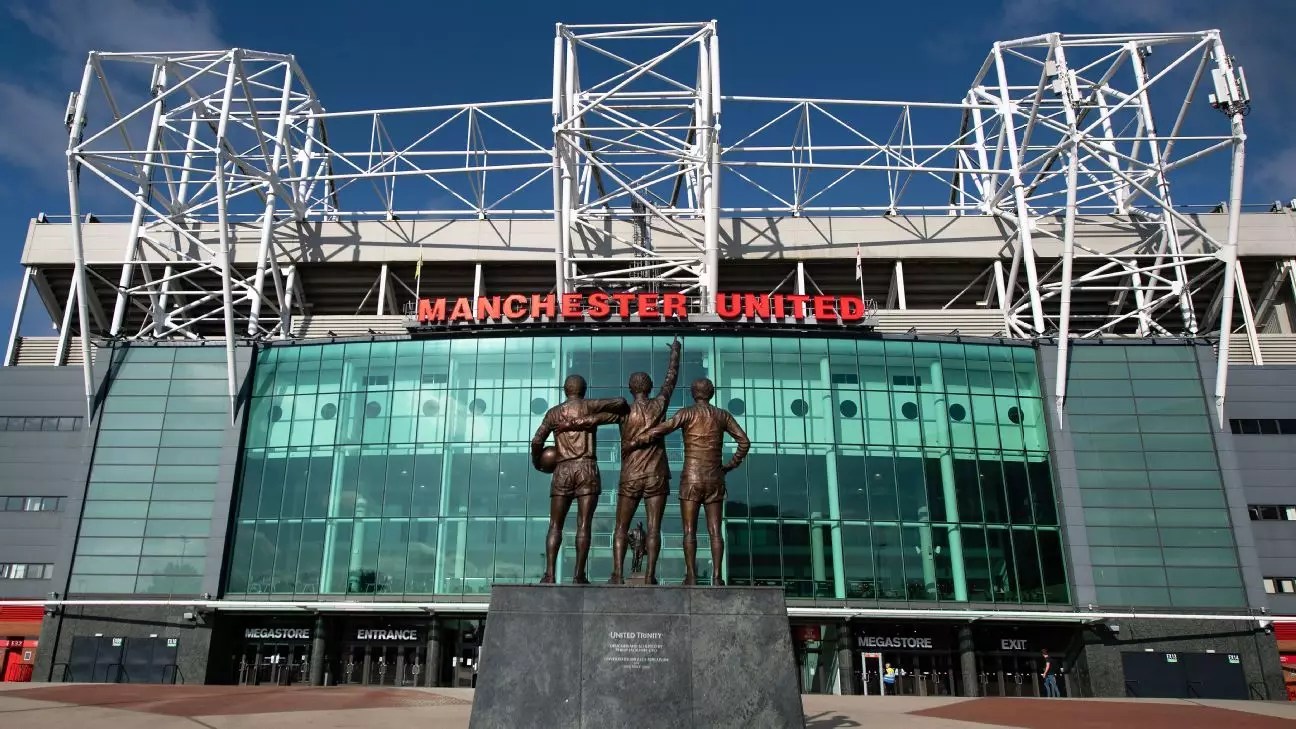Manchester United has recently found itself grappling with significant financial implications following the dismissal of manager Erik ten Hag and the departure of sporting director Dan Ashworth. As the club faces a challenging period, the financial reports reveal startling figures that illustrate the depths of its current predicament. This assessment not only explores the financial consequences of recent managerial changes but also considers the broader implications for the club’s operations and future.
One of the most striking revelations from Manchester United’s quarterly accounts is the hefty compensation bill amounting to £14.5 million ($18.2 million). This figure encompasses severance packages for Erik ten Hag, members of his coaching staff, and Dan Ashworth, who was at the club for only a short stint before his exit. The decision to extend Ten Hag’s contract until June 2026, made mere months before his firing, has turned into a costly error that has left the club reeling both competitively and financially. The accounts, presented on the New York Stock Exchange, identified these payments as ‘Exceptional Items,’ highlighting the financial turmoil stemming from the management’s choices.
Moreover, the club’s substantial cash outflow in severance payments underscores the volatility inherent in football management, where the stakes are exceedingly high. Dismissing a manager just months after a contract extension raises questions about the decision-making process at the board level. Such actions tend to reflect poor foresight and a lack of strategic planning, which could prove detrimental in attracting potential managerial talent in the future.
The financial fallout is further exacerbated by a staggering 42.1% drop in broadcasting revenue, plummeting to £61.6 million. This decline can be attributed to the team’s participation in the Europa League instead of the Champions League—a missed opportunity that not only signals a failure on the pitch but also highlights the severe financial implications of not competing at the highest levels. Since Manchester United’s performance in the Premier League has seen a decline, including their worst-ever finish of eighth place last season, the limp competition has severely hindered their revenue streams.
With the team hovering around the relegation zone, the emphasis on achieving a better league position becomes critical, not just for competitive integrity but for financial stability. The decline in broadcasting revenues is a stark reminder that success on the pitch directly correlates with the club’s financial health, serving as an ironic twist for a club that boasts a rich history and global following.
In response to their financial struggles, Manchester United has enacted cost-cutting measures, leading to over 200 redundancies since the INEOS group’s minority share purchase. While rationalizing expenditures can be a necessary step in tougher times, these measures cast a shadow on the club’s commitment to investment in both player development and fan engagement. This grim reality has not escaped the notice of the Manchester United Supporters Trust (MUST), which has voiced strong objections against ticket price increases, warning that such moves would be “futile and counterproductive.”
The sentiments expressed by fans reflect a broader discontent surrounding the club’s leadership, which has been marred by a decade of mismanagement and crippling debt burdens. In light of these financial reports, with increased ticket prices projected to yield only £2 million in revenue, the disconnect between the administration’s financial strategies and the on-ground realities faced by fans is apparent.
Despite the current challenges, United’s leadership is attempting to remain optimistic. Chief Executive Omar Berrada emphasized the focus on improving the team’s league position while also highlighting the positive developments within the club, such as their progress in the UEFA Europa League and the potential for a rebuilt Carrington Training Complex. The club is also seeking support for the long-term regeneration of Old Trafford, signaling a commitment to not just short-term fixes but also longer-term strategic thinking.
However, optimism needs to be matched with tangible performance improvements. The club’s continued struggles raise doubts about whether the necessary changes can be implemented swiftly enough to secure a better future. The cocktail of financial woes, poor performance, and fan discontent presents a daunting challenge for United’s management as it forges ahead.
While Manchester United has the resources and history to recover, the repercussions of recent actions cast a long shadow over its future. Only time will tell if the changes made today can steer the club back to its past glory.


Leave a Reply